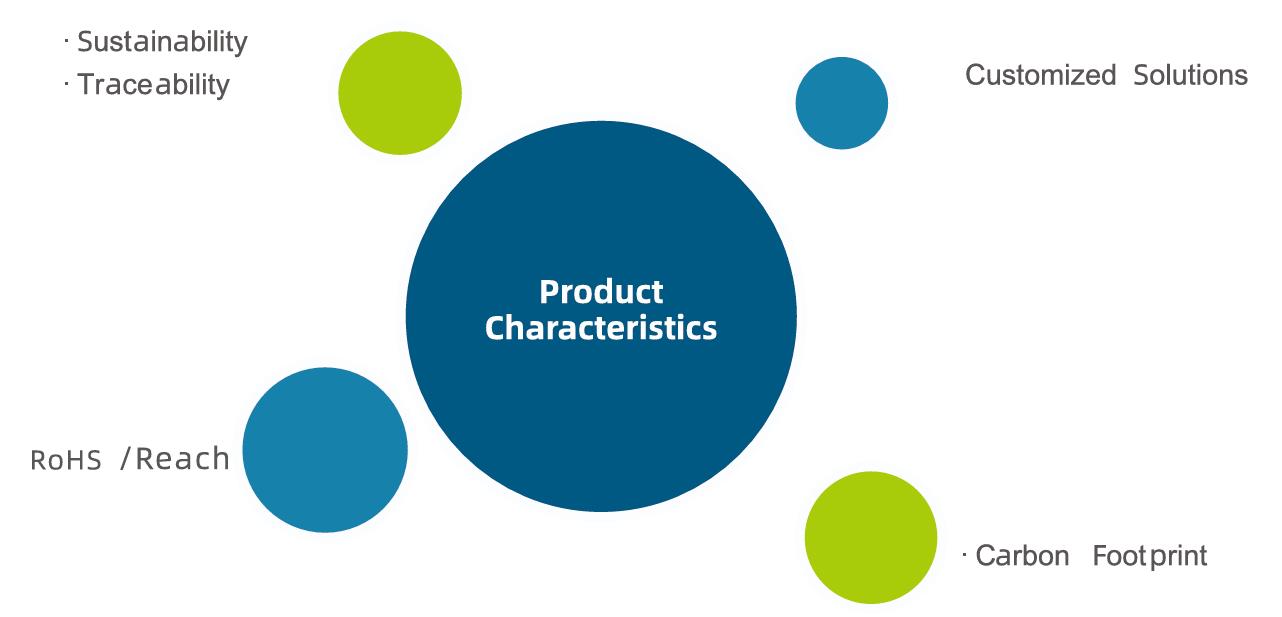
Polyphenylene sulfide (PpS) is a kind of plastic particles prepared by recycling post-consumer products (sourcesincluding but not limited to dust filter bags, electronic and mechanical parts, etc.) after pretreatment and standardized granulation modification. According to different recycling sources and quality grades, special classification method, technological innovation, performance re-optimization and high-guality automated processing were applied to provide customers with iniection molding grade PCR Pps particles, which can meet the diferent application needs of inustry customers, We also can orovide al-round customized svstem solutions ano innovative solutions accordina to the specialreauirements of customers.
| Material Brand | Ash content,% | IZOD Impact Strength,KJ/m² | Tensile Strength MPa | Flexural Strength MPa | Flexural Modulus GPa | Appearance | Certification | Application | Carbon emissions ton CO2e |
|---|---|---|---|---|---|---|---|---|---|
| rPPS-B103 | 5 | 3 | 40 | 80 | 3 | Black | GRS | Injection Compounding | 0.8917 |
| rPPS-8BG | 40 | 5 | 120 | 150 | 7 | Black | GRS | Injection Extrusion | 0.8426 |
| rPPS-N003 | 1 | 3 | 40 | 80 | 3 | Natural Color | GRS | Injection Compounding | 0.8835 |
Topcircle®,Tcyclesp®, Parpusтm ;

The products are suitable for modification processing and injection molding. High grade products can be used to make a variety of injection parts.


We offer a wide variety of materials, including general plastics, engineering plastics, and specialty plastics, covering almost all types of recycled polymers.

With a dedicated R&D team, we continuously innovate and develop high-performance, customized material solutions to meet diverse industry needs.

From research and testing to manufacturing and sales, we provide end-to-end solutions, streamlining the supply chain for our clients.

Our products promote low-carbon, circular economy practices,supporting global sustainability efforts with bio-based and degradable materials.
Sustainable low - carbon functional materials are applied across numerous critical areas. In the energy sector, they are pivotal. For instance, advanced photovoltaic materials with low - carbon manufacturing processes are used to construct more efficient solar panels. These materials enhance the conversion of sunlight into electricity, contributing to the expansion of renewable energy sources and reducing reliance on fossil fuels.
In the textile industry, sustainable low - carbon functional materials are making waves. Bio - based and recycled fibers are being used to create fabrics. These materials not only consume less energy during production but also have a lower environmental impact compared to traditional synthetic fibers. Moreover, some functional textiles made from these materials can regulate body temperature, repel water, or provide UV protection, all while maintaining a low - carbon footprint.
In the textile industry, sustainable low - carbon functional materials are making waves. Bio - based and recycled fibers are being used to create fabrics. These materials not only consume less energy during production but also have a lower environmental impact compared to traditional synthetic fibers. Moreover, some functional textiles made from these materials can regulate body temperature, repel water, or provide UV protection, all while maintaining a low - carbon footprint.


